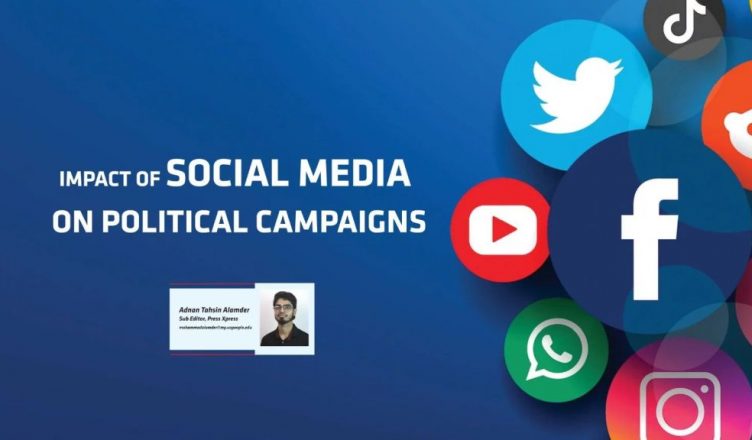In today’s digital age, social media has become an influential platform that shapes political campaigns. The power of social media cannot be underestimated, as it allows politicians to connect with their constituents on a personal level, disseminate information quickly, and mobilize support. However, it also presents challenges, such as the spread of misinformation and the potential for targeted manipulation. This article explores the impact of social media on political campaigns, examining both the advantages and drawbacks.
Enhancing Political Engagement
Empowering Voter Outreach
Social media platforms have revolutionized the way politicians engage with the public. One of the key advantages of social media in political campaigns is its ability to facilitate direct communication between politicians and voters. Through platforms like Twitter, Facebook, and Instagram, politicians can share their ideas, policies, and campaign updates directly with their followers. This direct engagement helps to foster a sense of accessibility and transparency, creating a stronger connection between politicians and their constituents.
Mobilizing Grassroots Support
Social media has proven to be a powerful tool for mobilizing grassroots support. Platforms like Facebook and Twitter allow campaigns to reach a wider audience and mobilize individuals who may not have been actively engaged in politics before. Political campaigns can create dedicated pages or groups to share information, organize events, and encourage volunteers to participate. Additionally, social media enables campaigns to leverage user-generated content, encouraging supporters to share their experiences and endorsements, further amplifying the campaign’s reach.
Challenges and Controversies
Dissemination of Misinformation
Social media’s role as a catalyst for the spread of misinformation has emerged as a major concern in political campaigns. The democratization of information on platforms like Facebook, Twitter, and YouTube has made it easier for false narratives, conspiracy theories, and misleading content to circulate rapidly and widely.
During political campaigns, misinformation can be weaponized to influence public opinion and sway voters. False claims about candidates, their policies, or past actions can damage reputations and create a skewed perception among voters. Even though social media platforms have taken steps to curb the spread of misinformation, the sheer volume of content and the speed at which it spreads make it a daunting challenge to tackle.
Targeted Manipulation
The abundance of user data on social media platforms has given rise to a practice known as micro-targeting. Political campaigns can utilize sophisticated algorithms to analyze user behavior, interests, and demographic information to create tailored messages for specific groups of voters. While this may seem like a strategic way to engage potential supporters, it also raises ethical concerns.
Micro-targeting allows campaigns to deliver different messages to different groups, which can result in the polarization of voters and the exacerbation of societal divisions. By catering to the individual preferences of voters, campaigns risk appealing only to specific issues that resonate with particular demographics, neglecting broader and more complex policy discussions. Additionally, the lack of transparency in the micro-targeting process makes it challenging for the public to understand the full scope of campaign strategies.
Amplification of Echo Chambers
Social media’s algorithms are designed to show users content that aligns with their interests and beliefs, creating echo chambers where like-minded individuals reinforce each other’s views without exposure to diverse perspectives. This phenomenon has significant implications for political campaigns, as it can foster the entrenchment of extreme ideologies and limit constructive debate.
In echo chambers, false information can thrive, and conspiracy theories can gain traction without critical scrutiny. This can lead to a fragmented and polarized electorate, making it challenging for politicians to bridge gaps and find common ground. The echo chamber effect also poses a threat to democracy, as it impedes the healthy exchange of ideas necessary for a well-informed citizenry.
Privacy and Data Security Concerns

The reliance on social media for political campaigning raises concerns about user privacy and data security. Political campaigns often gather vast amounts of personal data from social media users, which may include browsing habits, location data, and political preferences. While this information can help campaigns target potential supporters effectively, it also poses risks if mishandled or misused.
Instances of data breaches and the unauthorized sharing of user data have raised alarm bells about the potential for manipulation and exploitation. The Cambridge Analytica scandal, for example, exposed how user data was harvested and used for political purposes without users’ consent. Such incidents erode public trust in both social media platforms and political campaigns, necessitating robust measures to safeguard user data and ensure transparency in data handling practices.
As social media continues to wield its influence on political campaigns, addressing the challenges and controversies it presents becomes imperative. The dissemination of misinformation, targeted manipulation, amplification of echo chambers, and privacy concerns are crucial issues that demand attention from policymakers, social media platforms, and society as a whole. Striking a balance between harnessing the potential of social media for positive engagement and mitigating its negative impacts is essential to preserve the integrity of democratic processes and empower voters to make informed decisions.








